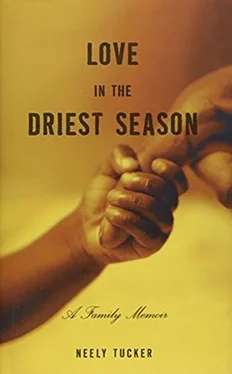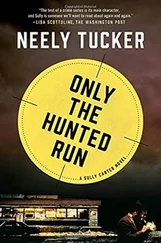The most expensive neighborhoods, the ones with houses big enough to include personal living space for us as well as my office, unfurled in towering groves of eucalyptus and pine and jacarandas. The plots were half an acre or larger. And, we discovered, every single one had a set of small, concrete-block buildings at the back of the property where the domestic staff lived, usually set behind a boundary wall from the main house. Servants were paid a pittance, were expected to work long hours, and were not to come onto the main property after working hours. We toured twenty or twenty-five houses, looking for one that didn’t have such an arrangement, for we neither needed nor wanted live-in help. We looked at smaller houses in different neighborhoods. They all had some sort of domestic arrangements too.
We finally gave up, since the only solution seemed to be taking a house and then firing the staff, which hardly seemed a blow for social progress. We settled into a house that was someone’s idea of a Spanish-style hacienda. It had vaulted ceilings, arched doorways, stone floors, and big glass doors that swung open onto a patio. I set up my office in a large room off this end of the house, not thinking that the owners might be concealing a tin roof behind the red tile façade. They were. In a rainstorm, the din was so loud that I had to go to the back of the house, under more solid construction, to conduct interviews on the bedroom phone, balancing a laptop computer on my knees to take notes. There was also a small swimming pool, complete with a fountain and a palm tree by the side. It rented for the equivalent of $1,400 per month, which included the residence and salaries of the husband-and-wife team, Mavis and Judah Ganuka, who tended the place. We doubled their salaries, which delighted them, but it still only amounted to about $100 each per month. Judah celebrated each month by drinking up his extra pay as soon as he got it; Mavis saved hers to build a small house on her family’s land in the rural areas.
We made a flurry of new friends; Charity, who worked in the local film industry; Angus and Chris, my colleagues at the Associated Press and Reuters, respectively; Bill, who was a senior officer at the U.S. Agency for International Development, and his wife, Dumisille; Patrick and Yvonne, an African American architect and his wife who had come to work for a while in Harare; Adam and Sekai, an Australian television journalist and his wife, a Zimbabwean writer; and Heather and Steve, another interracial couple. She was a Zambian clothes designer, he a Canadian airplane mechanic.
My work assignment also changed. My paper’s parent company, Knight Ridder, took over several foreign bureaus from its member papers. The Africa bureau was one of them, leaving me with a new set of bosses in Washington, not Detroit.
Harried by these personal and professional changes, the usual travel (I averaged about two hundred nights a year on the road), and lulled by Harare’s drowsy demeanor, it was nearly a year before it became apparent to us that the raw numbers of AIDS deaths were fact, not hyperbole. We thought we might volunteer to help out in one of the orphanages, maybe even take some children into our home on occasion. We had mulled over the idea of adopting in the past, and considered that possibility here. We thought such an overture would be welcomed, considering the vast numbers of orphans. We were quickly and politely put in our place by Tony Mtero, the director of the Harare office of the national Department of Social Welfare.
Tony was a slender, soft-spoken man who had spent a decade studying in the United States. He was also the fiancé of one of Vita’s friends in town, Gloria, a fellow African American expatriate. We met them for dinner one night in one of Harare’s nicer restaurants. When the drinks and appetizers came, and Vita said that we wanted to volunteer in an orphanage, perhaps even adopt, Tony nodded and stroked his mustache, as if considering a complex problem of algebra.
“Well, you can’t adopt,” he said, between nibbles on the food spread before us. “The law does not allow adoptions by foreign nationals.”
“Oh,” Vita said. Her voice fell half an octave as she said it, a change in timbre that I knew mirrored a drop in her hopes.
“Well,” Tony said, “there’s one way, but that requires the national minister of social welfare to personally approve an exemption, and let me tell you, that doesn’t happen. Maybe once, twice a year.’’
“Oh,” I said this time, looking at Vita across the table and raising my eyebrows half an inch, a gesture that said, This isn’t going the way we thought.
“I don’t mean to be rude,” Tony said, putting a hand on Vita’s arm. “People would be suspicious, though they will not tell you that. They will wonder why Americans would want a Zimbabwean child in their home.” He turned to me, smiling to ease what he considered to be a blow. “And they’re going to particularly wonder why you, Neely, would be interested in a black child. A boy or girl, it makes no difference. It’s seen as something very odd here. I know that in the United States there is that controversy about whites raising blacks. But this is different. White men who want to be around black children… well, the perception is there is something unnatural there. Some sort of sexual abuse, likely. Perhaps more importantly, even before adoption by a white person would be considered, there is the matter of ancestral ties. There are totems, the symbols of something you might call family clans. A child without a totem-well, such a child would be considered to be lost. He or she would have no way of communicating with their ancestors. You are not African”-now he turned back to Vita-“nor are you, in this context, and therefore you cannot know how an African child should relate to these ancestral spirits. It is one of the most elemental staples of life.”
He laughed, perhaps uncomfortable to be discussing such issues. Gloria said, “But there’s fostering. There’s volunteering.”
“Oh, yes,” Tony said, his tone lifting. “I do not mean to paint such a gloomy picture. I believe you might become foster parents to a child while you are here. In particular, we have a program for volunteers to take children out of the orphanage for the weekend to let them spend some time with a family. That would be a huge treat for them.”
We ordered dinner then, laughing about Tony’s time in the United States-he had been in Minnesota and had not known the world could be so cold-but came back to the topic at the end of the evening.
“We’ll be delighted to foster, to bring some kids home for the weekend, at least for the weekends I’m in town,” I said. “The house we’re renting has a big yard and pool. The older kids will love it. But just out of curiosity, with the AIDS situation being what it is, why is the law on foreign adoptions so restrictive? I mean, from everything I read, there are more orphans than anybody knows what to do with.”
Tony gave a gesture that was half nod and half shrug.
“It’s a matter of debate within the field. But the general policy is to actively discourage adoption by foreigners. The matrons at the orphanages will be delighted for you to take children home, because they have too many kids and too little money to care for them. Social workers, though, are the ones who make the decisions about a child’s permanent status. They have caseloads in the hundreds. They don’t even have cars to make their rounds. They have to be in court often. And there is what I told you before-it is against the social norm. Even among Zimbabweans, adopting a child not related to you is very uncommon. We see only a few such cases a year. The social workers know all this, and they know that, ultimately, their decision will have to go all the way to the national minister of social welfare.” He rapped his knuckles on the table to emphasize the last few words. “That is the presidential cabinet. It is the same as if you had to get a piece of paper into Bill Clinton’s White House. No social worker wants to approve a case only to have it rejected from higher. It will look like they made a mistake.”
Читать дальше











